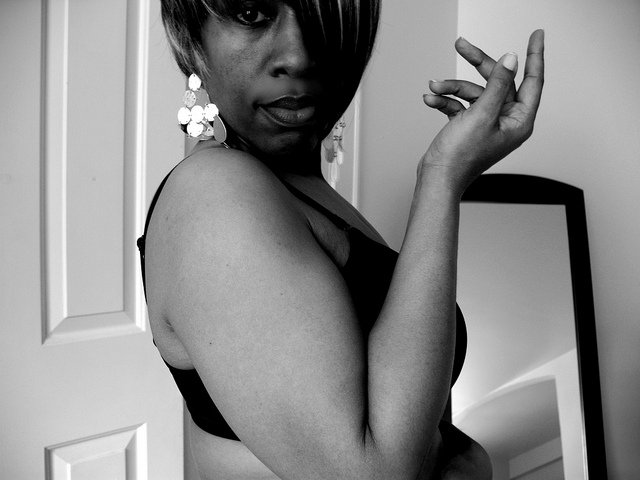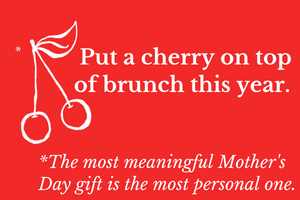Body hate, financial panic and PTSD can plague us all in a myriad of shades.
Sometimes, though, our angst simply hails from having lost what we once knew as “normal.”
The devoted soldier returning home after both of his legs were blown off; the hardworking business mogul who suffers an incomprehensible life changing loss of income; and the committed individual who radically changed their physique only to gain back their weight and all that comes with it—all share the demolishing sensations that come with newly embodying a gravely different truth than what they’ve lived up to that point.
It may not be a lack of gratitude, the absence of survival skills or even shame that depresses and/or devastates those suddenly faced with new ilk.
Alternately, when we’ve known something else or “had a taste of the grape,” (like being thin for the first time in our lives, serving our nation with strength and an unswayable seeming prowess, experiencing the fruits of our labor on magnificent levels) only to be catapulted into a different driver’s seat, it can be challenging to slay the nostalgia for what we once had.
Even aging—a God-given luxury that some of us embrace, if not adore—transports certain people into vast self-sabotaging spirals of horrendous bouts of internal dialogue. To suddenly possess a smattering of age spots, grey hair, broken capillaries, visible veins, cellulite or—gasp—wrinkles, can be enough to fuel self-loathing if we are not willing to accept natural change.
As a 46-year-old woman now experiencing pre-menopausal symptoms (erratic menstrual cycles, significant weight fluctuations, pains, mood changes and other side-effects), it can be easy to bemoan how easy it used to be when my period would come regularly—it was predictable, and therefore more manageable.
But happiness didn’t come easy!
My journey through my teens, 20s and 30s was bumpy—fear seemed to gobble me up. Those periods that used to arrive every 28 days like clockwork and with little if any ailments could not be misconstrued for me understanding my body. What was happening back then physically surely seems far less obnoxious to me now than some of the changes that I currently encounter surrounding my womanhood. But make no mistake: the abominable language and longing for happiness that sloshed inside my being at 36 is nothing I’d return to—not even for one day or “day off” from pre-menopausal symptoms!
With some age and life experience comes the finesse of how to adjust to things—and this fact alone can serve as a daily dose of “happy” for any of us.
At this age, women can enjoy looking in the mirror more than before and almost congratulate ourselves on having moved through a series (or decades) of “many things.” We can stand up for what we no longer accept in life, as we not only know the difference now but also know that we’re worth it! With our newfound tastes, traits and even life tasks that we hadn’t owned when only 20, we can today choose from such a wider frame of reference, when selecting other treatments (great food, meditation, movement or whatever it be) as our coping mechanisms for that which ails us.
We have the capacity to be stronger, more evolved and aware of the realities of life.
Hell, if we’re covering up some greys, (Shh! Those are just quite stunning “arctic blondes!”), then that means our hair is indeed growing as we are. Seeing as the middle-age bracket seems to be the pack most interested in nutrition and healing via nutritional awareness, we now embrace and even celebrate such maintenance projects.
With the proverb, “He who has never seen Heaven doesn’t know he’s in Hell” reminding us just how easy it is to habitually dwell in our daily states of being, assuming that all is fine and needn’t improve, so too does the epic and overwhelming surge of duress loom when we have lived some glorious moments and have been gifted a point of comparison.
When things change, life often seems harder. Acceptance of this “new normal” does not always come easy, but adjusting our lives to embrace such changes must happen for us to thrive.
It’s kind of like jumping into a rental car that somebody else drove before us: the chair, mirror and seatbelt settings most likely won’t align with our body type, so we make adjustments. We could drive without adjusting a single thing, but our driving will be affected: we won’t be able to focus on the road if we do constantly need to hunch our backs or lean over awkwardly to reach the controls. To simply adjust the car’s settings is not the same as agreeing to forever love and/or drive that particular automobile as is, nor does it reflect on us as people. It’s simply about adjusting the situation to fit us better so that we may carry on with our most important missions and ever-pressing tasks.
Unlike body or life changes, adjusting the car settings comes naturally to us. We don’t badger ourselves verbally for needing to do so; conversely, most of us don’t think about it or analyze it—we just do it to move forward as quickly as possible. It’s not an emotional process since we understand how to fix that situation readily.
Adjusting to our newly packed on weight, however, can feel like giving in; realizing that our job and subsequent money is gone can seem like quitting; understanding that a simple movement cannot be executed from our bodies the way it used to can seem like surrender. We don’t always adjust readily through the pangs of frustration that accompany these “new normals”—but the good news is that we truly can!
Any change that takes us by storm—no matter how hard the settings are to adjust—happens for a reason. We needn’t accept our new set of circumstances as fun, irreversible or as what our “new normal” shall forever be so painstaking. But we must readily embrace the notion (if we are here to authentically improve and love our lives) that the occurrences that we do receive are indeed here to make us unequivocally and immeasurably quite better.
Maybe we weren’t meant to be mediocre and instead have to fall in order to learn how to walk over and over again—each time figuring out a new stride. Perhaps we are not entirely showcasing our beauty by merely sitting on a shelf of stability (the way it was) and not allowing our “flakes and flaws and also fabulousness” to do their thing. But rest assured that if we’ve lived to see both comedy and tragedy and have been on the front lines of real deal living, we are lucky! We are then ordained as part of the “chosen” pack, the select, the elite of livers, doers, be-ers—those who are being asked to stand up and still grow.
We are being summoned to emerge as creative people, to tap into new ways of being with each challenge we face.
The key similarity with us all is that our “new normal” is a 911 call to adjust our settings tenfold but it is not an excuse to ring the bell or sign off as part of the living folk or lot of lucky people to be alive.
Once stepping up to that adjustment agreement, there is no limit! We can recreate what we had albeit under different restraints, names and themes; or we can entirely reinvent and take this “Snow Globe” or quite shocking “shake up” as the wake up call that our souls so deeply craved. (Damndest thing in that the inner self knows what it needs far sooner than our daily consciousness, surface desires and public persona do).
So when we find that newfound determination to “adjust our settings,” we then have nothing left as an option but to run like Hell with it all with indefatigable and passionate aplomb…given the choice, I say let’s dance!
Author: Laurie-Beth Robbins
Image: Afunkydamsel/Flickr
Editor: Renée Picard







Read 0 comments and reply